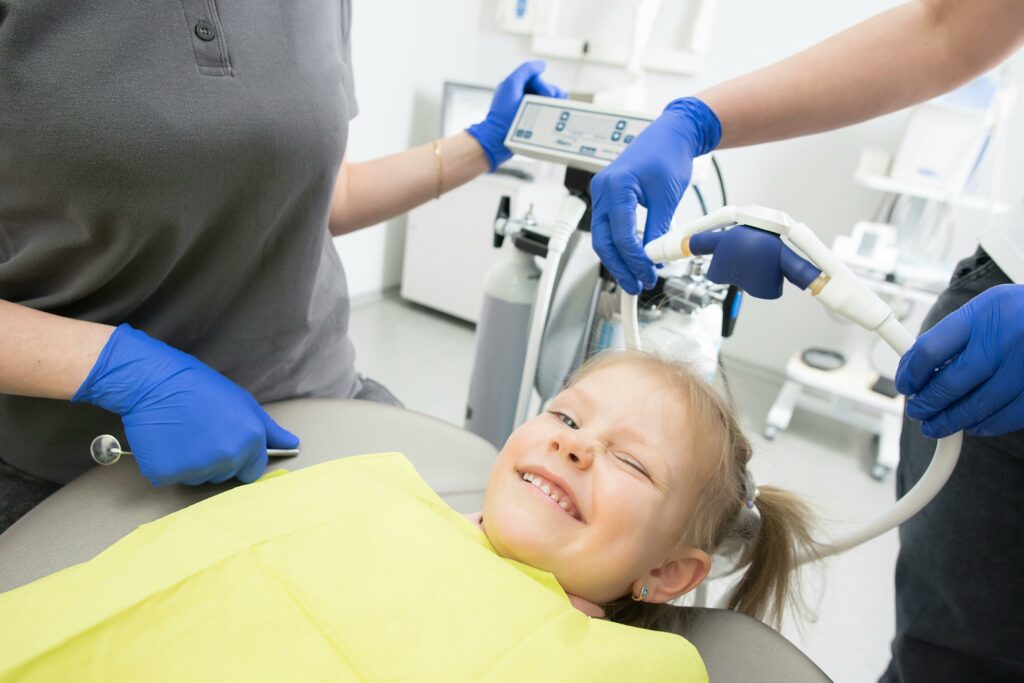This guide outlines how we comply with CQC DBS compliance standards and how DBS checks for dental staff help protect vulnerable patients in a regulated dental environment.
What Is a DBS Check?
The Disclosure and Barring Service (DBS) checks a person’s criminal history. It is a legal safeguard to ensure individuals working with children and vulnerable adults are safe to do so. At Cavity DBS, these checks form a key part of our dental practice safeguarding policy.
There are different levels of checks. For clinical roles, we require enhanced DBS checks that include local police records and barred list information where appropriate.
Enhanced DBS Checks for Dental Staff
In line with CQC DBS compliance expectations:
-
All clinical staff must undergo enhanced DBS checks for clinical roles.
-
This includes dentists, dental hygienists, dental therapists, and dental nurses.
-
Dentists already registered on the NHS Performers List may use their existing DBS check, but we still:
-
Conduct a risk assessment.
-
Obtain written confirmation from NHS England that the check is current and valid.
-
When Non-Clinical Staff Need a DBS Check
Not all non-clinical staff in dental practices automatically need a DBS check. The need is based on their duties and interaction with patients.
A DBS check may be required if:
-
The staff member supervises a child while a parent is receiving treatment.
-
The staff member performs chaperone duties.
A DBS check is generally not required if:
-
The role involves only handling medical records, with no direct contact with patients.
All decisions about non-clinical roles are documented in risk assessments, forming part of our dental practice safeguarding policy.

Team Members with Existing DBS Checks
When new team members join us with an existing DBS check, we:
-
Check if the certificate is less than 3 months old.
-
Verify the check level matches their role.
-
Use the DBS Update Service, with the individual’s consent, for quick and cost-effective verification.
Starting Work Before DBS Results Are Received
In some cases, new team members may begin work before the DBS certificate is issued. If this occurs, we ensure:
-
A comprehensive risk assessment is completed.
-
Appropriate supervision or limitations are in place until the check is confirmed.
This reflects best practice in CQC DBS compliance while maintaining workflow and safety.
Renewal and Record-Keeping
While there’s no set legal requirement to renew DBS checks at specific intervals, our policy is based on risk evaluation. We securely store only the following:
-
Issue date
-
Type of check
-
Unique certificate reference
-
Role applied for
Full certificates are destroyed after no more than 6 months, in accordance with best safeguarding practice.
Overseas Applicants and Locum Staff
For team members applying from overseas:
-
We request a certificate of good conduct or equivalent from their country of origin.
-
We still apply for a UK-based DBS check in case of any cross-referenced records.
For locum and agency staff:
-
Direct hires follow our standard process.
-
For agency staff, we require written confirmation that appropriate DBS checks for dental staff have been completed at the correct level.
Levels of DBS Checks in Dentistry
Here’s how the Disclosure and Barring Service in dentistry categorizes check levels:
-
Basic: Shows unspent convictions.
-
Standard: Includes spent convictions and cautions.
-
Enhanced: Adds police-held information relevant to the role.
-
Enhanced with Barred Lists: Includes everything above, plus checks against the barred lists.
The enhanced DBS checks for clinical roles are essential for anyone in direct patient-facing positions.
Frequently Asked Questions
How long does a DBS check take?
Basic checks: About 14 days
Enhanced checks: Up to 8 weeks depending on complexity
How much do they cost?
-
Basic or standard: £23
-
Enhanced: £40
-
Enhanced with barred lists: £57.50
-
DBS Update Service: £13/year
Who pays for the DBS check?
-
Employed staff: The practice covers the cost.
-
Self-employed contractors: They pay their own.
Can I use an existing DBS check from another job?
Yes, if it is recent and valid. If you're registered with the DBS Update Service, we can check your status online with your permission.
How to Apply for a DBS Check
-
Basic checks can be requested by individuals directly.
-
For enhanced checks, practices must go through an Umbrella Body.
-
We guide all new staff through this process as part of onboarding.
Final Thoughts
At Cavity DBS, we are committed to full CQC DBS compliance and take our responsibility for dental practice safeguarding seriously. Whether you're a dentist, nurse, or receptionist, our processes ensure the right DBS checks for dental staff are always in place.
If you have questions about DBS checks or wish to apply for a role at our practice, get in touch with our team today.
